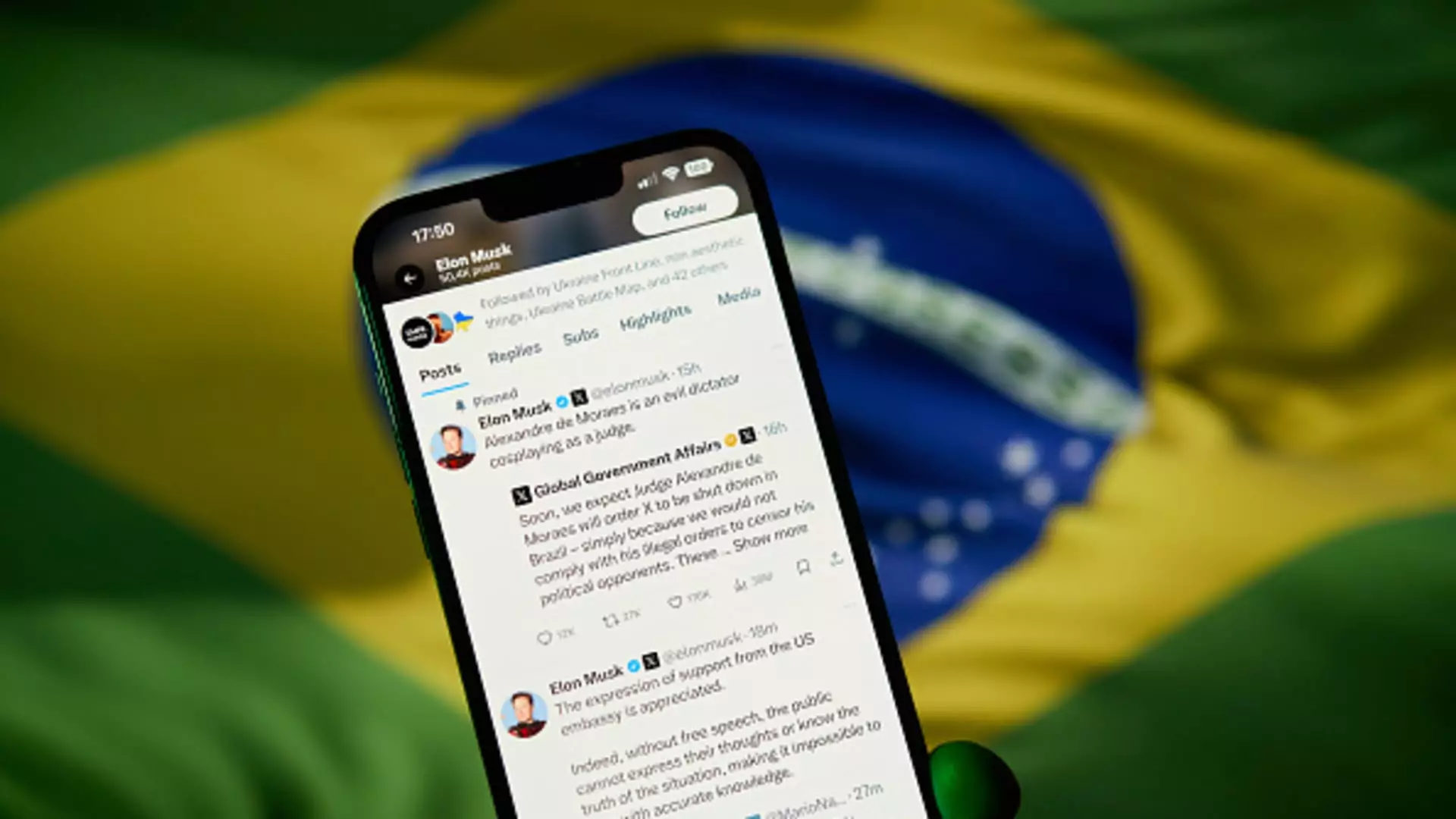In a striking move, Brazil’s federal supreme court has unanimously upheld the suspension of the popular social network, X, formerly known as Twitter, which is owned by tech magnate Elon Musk. This decision is unprecedented in its scope, as it signifies a deepening tension between national governance and global technological influence. The court’s action was prompted by a series of violations by X regarding Brazilian laws surrounding political misinformation and hate speech. Chief Justice Alexandre de Moraes delivered the initial suspension order, emphasizing that Musk’s platform failed to adhere to legal expectations—a stance that raises questions about the responsibility of tech giants in managing content on their platforms.
As part of the repercussions of this ruling, the court has moved to freeze the financial assets of Starlink, Musk’s satellite internet service, operating in Brazil. This step is ostensibly to ensure compliance with the orders against X. Such actions reflect not only a systemic approach to regulation but also highlight the broader implications for businesses operating within national jurisdictions. The Brazilian telecommunications regulatory agency, Anatel, has mandated internet service providers to block access to X, demonstrating the lengths to which the government is willing to go to enforce the rule of law.
According to reports, however, Starlink plans to defy Anatel’s directive, potentially risking the revoke of its operating licenses in Brazil. This creates a scenario where Musk’s businesses are locked in a battle against the Brazilian government, with national enforcement mechanisms clashing with corporate interests and tech-driven user demands. The potential ramifications of this clash could significantly reshape the operational landscape for tech companies in Brazil.
The reaction from the public and political analysts has been mixed. The suspension of X has divided opinion among users and politicos alike. While some endorse the court’s actions as necessary to control the spread of misinformation, others lament the loss of a vital communication platform. A notable pivot saw many users migrating to alternative social media platforms, with Bluesky reporting unprecedented spikes in activity from Brazilian users. This migration underscores the adaptability of digital communities in the face of censorship and represents a crucial shift in the digital landscape.
Elon Musk, known for his forthrightness, has escalated his rhetoric against the Brazilian government. Branding Justice de Moraes as a “criminal,” Musk’s comments have drawn attention to the apparent dissonance between his self-proclaimed commitment to free speech and the reality of his platform’s actions. Critics argue that his approach to governance and free expression often appears inconsistent, dependent on the geopolitical scenarios and local governance structure involved.
The incident in Brazil serves as a critical case study in the evolving interplay between national sovereignty and global digital governance. It raises essential questions about how far countries are willing to go in curbing the influence of foreign entities over their information ecosystems. It’s a reminder that, while tech companies espouse ideologies of freedom and democracy, they must also navigate complex legal frameworks that vary dramatically from one jurisdiction to another.
Musk’s strategy of challenging the government’s ruling raises concerns about accountability. The call for an end to U.S. foreign aid to Brazil reflects a broader narrative of perhaps imposing economic pressures in the face of regulatory challenges—a tactic that could lead to significant geopolitical ramifications. The response of Brazilian officials, fueled by public sentiment, may dictate whether this incident remains an isolated case or sparks a larger movement for regulating tech companies on a more global scale.
As the situation continues to unfold, both Musk and Brazilian authorities stand at a crossroads that will likely define future relations between tech giants and nation-states. The ongoing tussle embodies a pressing dialogue about digital freedoms and the limits of corporate power in public discourse. Lessons drawn from this episode could usher in an era where tech companies are held more accountable for their global operations, a trend that would fundamentally alter the landscape of social media and its governance worldwide. The implications of such legal precedents will resonate far beyond Brazil, influencing global practices in the ever-evolving digital age.


Leave a Reply